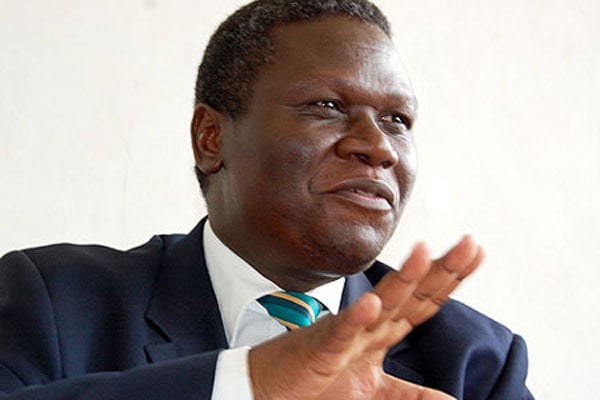Prime
Only national dialogue can pull Uganda back from polarisation

Norbert Mao
What you need to know:
- In light of our painful experience, it is crucial for the government to show its good-faith by immediate guarantees of freedom of political activities; these include freedom of expression, freedom of association, freedom of movement, and freedom of organisation.
The moment of truth is upon us as a country. There’s discontent with the status quo and the discontent is not as unpopular as some may want us to believe.
What we have is not an aggrieved minority that can be ignored but a popular discontent that has to be channelled creatively.
The violent expressions of discontent and the efforts to quell those expressions both traumatise the society. With every election cycle this trauma increases.
Shall we let circumstances push us over a precipice into a new dispensation or shall we seize the reins and plan the future? Will the post-Museveni Uganda come through a plunge or through a plan? Shall we have change with responsibility or change with reckless abandon? Every candidate appeals to the most radical of their political bases.
None makes an effort to appeal to the centre. Even the winner doesn’t appeal to the centre in governing.
As a result, the country becomes more toxic and public discourse revolves around name calling, character assassination and stigmatisation.
We need to talk to each other. Imagine if the leaders who led us to independence had talked to each other.
We would not have had all the turmoil that traumatised our country in its infancy.
But it is still possible for Uganda to see what it has never seen before: change without bloodshed and chaos. Ugandans have seen the Internet. Ugandans have seen all sorts of technological innovations.
The one thing Ugandans have not seen is peaceful change. It is the one thing Ugandans yearn to see.
For that to happen, we need to find common ground. And the only way for the country to find common ground and build a new consensus is for leaders to embrace some positions that are unpopular within their own camps. The capacity to build bridges is the one skill our leaders badly need.
And yet like zombies, we go through the empty ritual we call elections every five years. New groups access some political offices and after five years more than two thirds of them are ejected from office.
The circus goes on. With an entrenched ruling party that presents the challengers as anarchists bent on destroying the country.
This message is intended to mobilise the country to vote for the lesser evil. The devil we know. Yet voting on the basis of the lesser evil principle is not sustainable.
Voters make a choice not because they find their candidate to be so awesome but because they find the alternative even more unpalatable.
In 2018, we issued the following statement on dialogue. It is worth reproducing: “Our country is in the grip of a grave national crisis. This situation has become highly toxic and explosive. This toxic atmosphere has now infused all sectors and all levels of our national life. There is need for a serious, genuine and well-prepared national dialogue to address this crisis. It is clear to us, the undersigned political leaders, that, in order to ensure that such a national dialogue is serious, genuine, well-prepared and fruitful, it is absolutely necessary to agree on and put in place the following elements, before embarking on the process of dialogue.”
We then made seven proposals to make the process worthwhile. First is the need to have a clear agenda for the national dialogue.
Second is to determine the participants in the national dialogue so it is inclusive.
Third is the modalities for convening and facilitating the national dialogue.
Fourth is the necessity to agree on independent arrangements for financing the national dialogue to avoid manipulations.
Fifth is the necessity to agree beforehand on arrangements for guarantors of the outcome of the national dialogue. This will ensure that the eventual outcome of the national dialogue is acted upon and fully implemented by all stake-holders.
Sixth, is to recognise that in view of recent ugly developments in the country, it is absolutely necessary for the government to demonstrate its good-faith through immediate and guaranteed end to all acts of political repression, persecution, and impunity; these include: intimidation, arbitrary arrest and detention, and all forms of brutality.
And finally, in light of our painful experience, it is crucial for the government to show its good-faith by immediate guarantees of freedom of political activities; these include freedom of expression, freedom of association, freedom of movement, and freedom of organisation.




